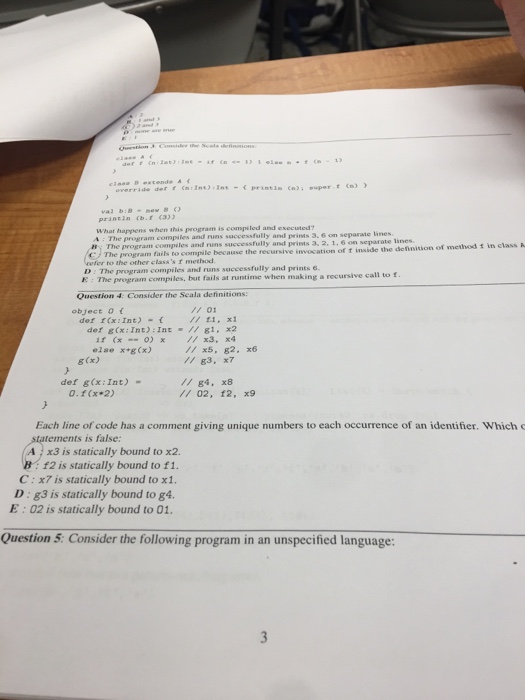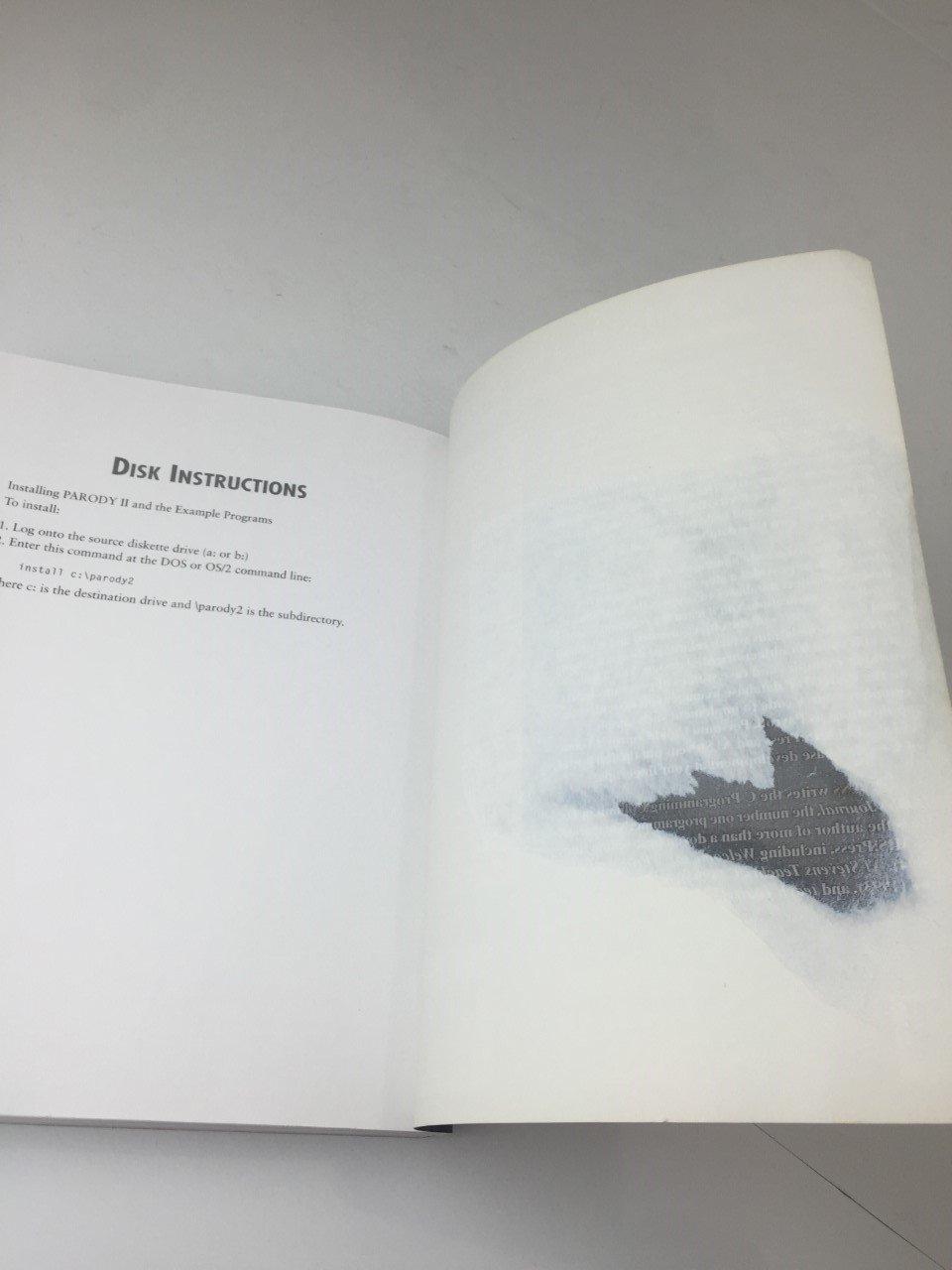ide der t nrint)ns-printin (n) supert (a) val b:8-newB prantin ca.r (3)) What happens when this program is compiled and executed A The pro By The program compiles and runs successfully and prints gram compiles and runs successfully and prints 3. 6 on separate lines a, 2, 1.6 on separate 1 sive invocation of t inside the definition of method f in class A i /c:) The program fails to compile because the fer to the other class's f method The program compiles, but fai at runtime when making a recursive call to t. Question Consider the Scala definitions object o 1 01 def f(x:Int)-.x1 def gcx: Int):Int/g1, x2 if (x "-?) x // x3. ?4 // g3, x7 //g4, x8 else x*g(x) s(x) // x5, g82. x6 def g(x: Int) - o.f(x 2) // 02, f2, x9 Each line of code has a comment giving unique numbers to each occurrence of an identifier. Which statements is false A x3 is statically bound to x2. B: f2 is statically bound to f1. C: x7 is statically bound to x1. D: g3 is statically bound to g4. E: 02 is statically bound to 01. Question 5: Consider the following program in an unspecified language: ide der t nrint)ns-printin (n) supert (a) val b:8-newB prantin ca.r (3)) What happens when this program is compiled and executed A The pro By The program compiles and runs successfully and prints gram compiles and runs successfully and prints 3. 6 on separate lines a, 2, 1.6 on separate 1 sive invocation of t inside the definition of method f in class A i /c:) The program fails to compile because the fer to the other class's f method The program compiles, but fai at runtime when making a recursive call to t. Question Consider the Scala definitions object o 1 01 def f(x:Int)-.x1 def gcx: Int):Int/g1, x2 if (x "-?) x // x3. ?4 // g3, x7 //g4, x8 else x*g(x) s(x) // x5, g82. x6 def g(x: Int) - o.f(x 2) // 02, f2, x9 Each line of code has a comment giving unique numbers to each occurrence of an identifier. Which statements is false A x3 is statically bound to x2. B: f2 is statically bound to f1. C: x7 is statically bound to x1. D: g3 is statically bound to g4. E: 02 is statically bound to 01. Question 5: Consider the following program in an unspecified language







